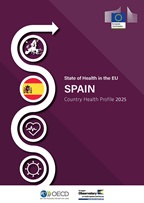HSPM
Health Systems and Policy Monitor

Spain’s National Health System (Sistema Nacional de Salud, SNS) is based on the principles of universality, free access, equity and fairness of financing. The SNS provides universal coverage, and care is predominantly provided within the public sector and free of charge at the point of delivery.
The SNS is organized at two levels – national and regional – mirroring the administrative division of the country. The 17 regional Departments of Health have primary jurisdiction over the organization and delivery of health services, often with support from specialized entities such as regional health technology assessment (HTA) agencies. The national Ministry of Health is responsible for planning and regulation of nationwide laws and regulations. The highest body for coordination is the SNS Interterritorial Council of the SNS, formed by the Spanish Minister of Health and the 17 regional Ministers of Health.
The SNS is funded from general taxation. Tax revenue flow is highly decentralized, so regional governments allocate their own health budget. However, there is a complex system of reallocation funds to reduce regional disparities and ensure geographical equity for the essential services (education, health and social care).
The benefits package is categorized into two types of services: the common package with three subcategories (core package, supplementary package and accessory services) common to the 17 regional services composing the SNS; and the complementary package, which comprises services and products that are decided by the regions and paid with regional funds. The basic benefits of the common package are not subject to any patient cost-sharing. Only pharmaceutical prescriptions and ortho-prosthetic devices incur co-payments.
Subscribe to our newsletter
Sign Up